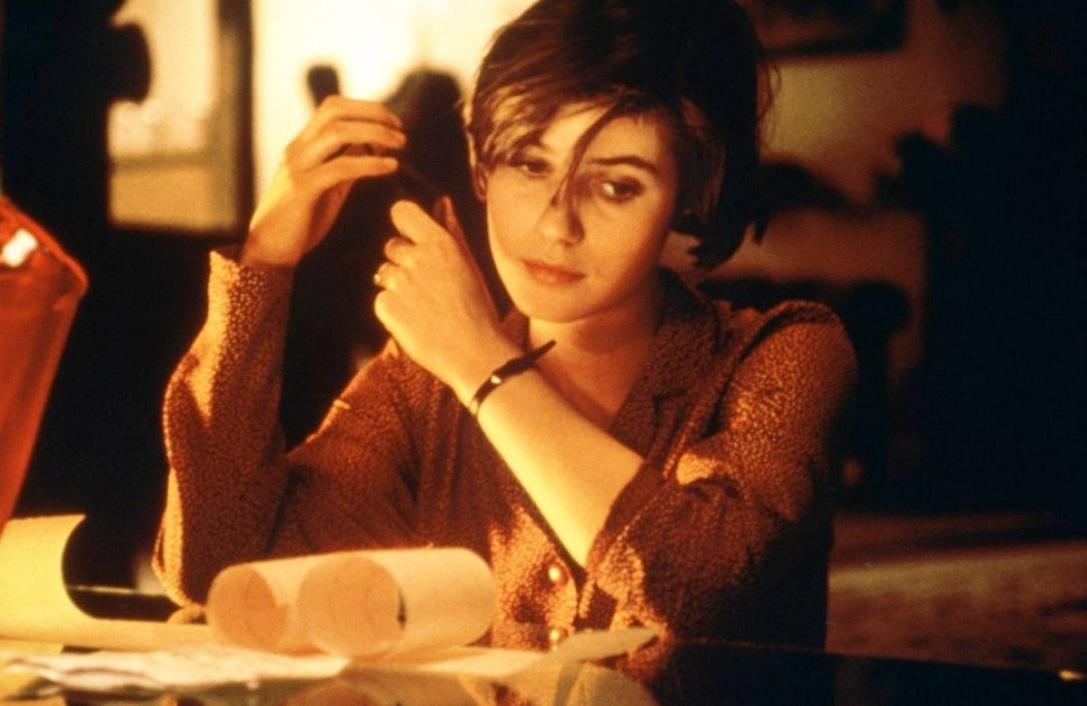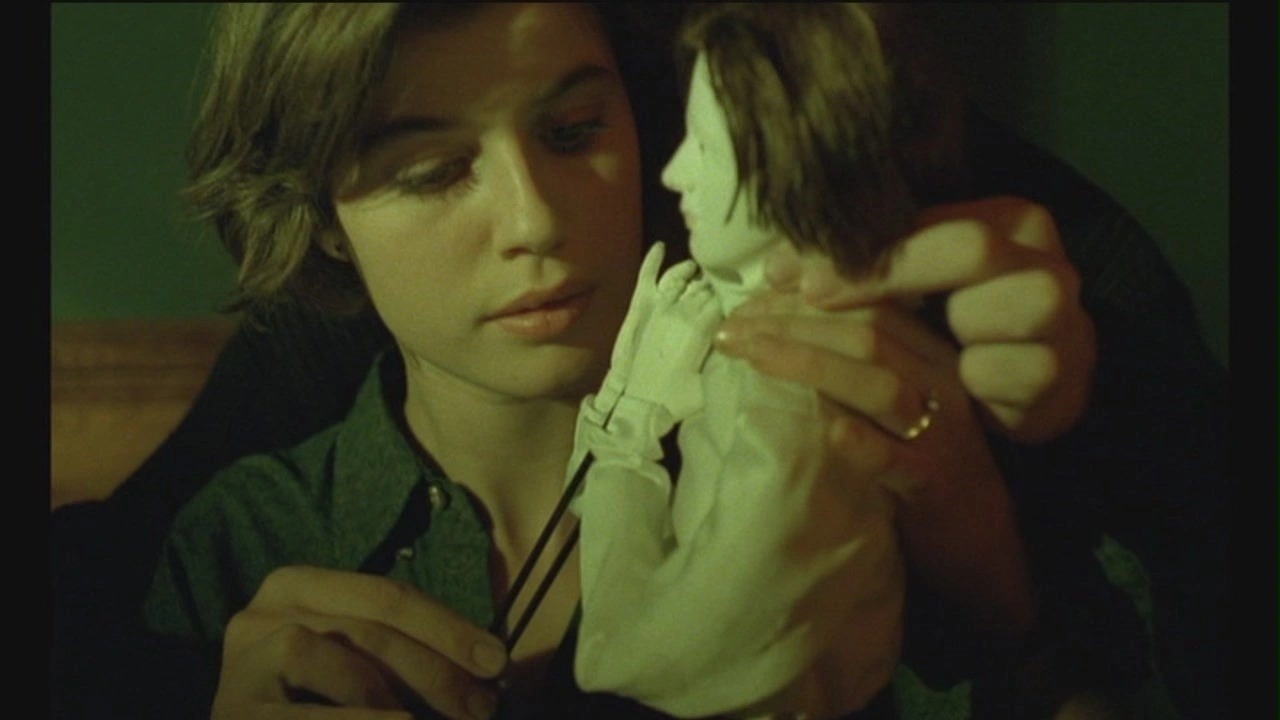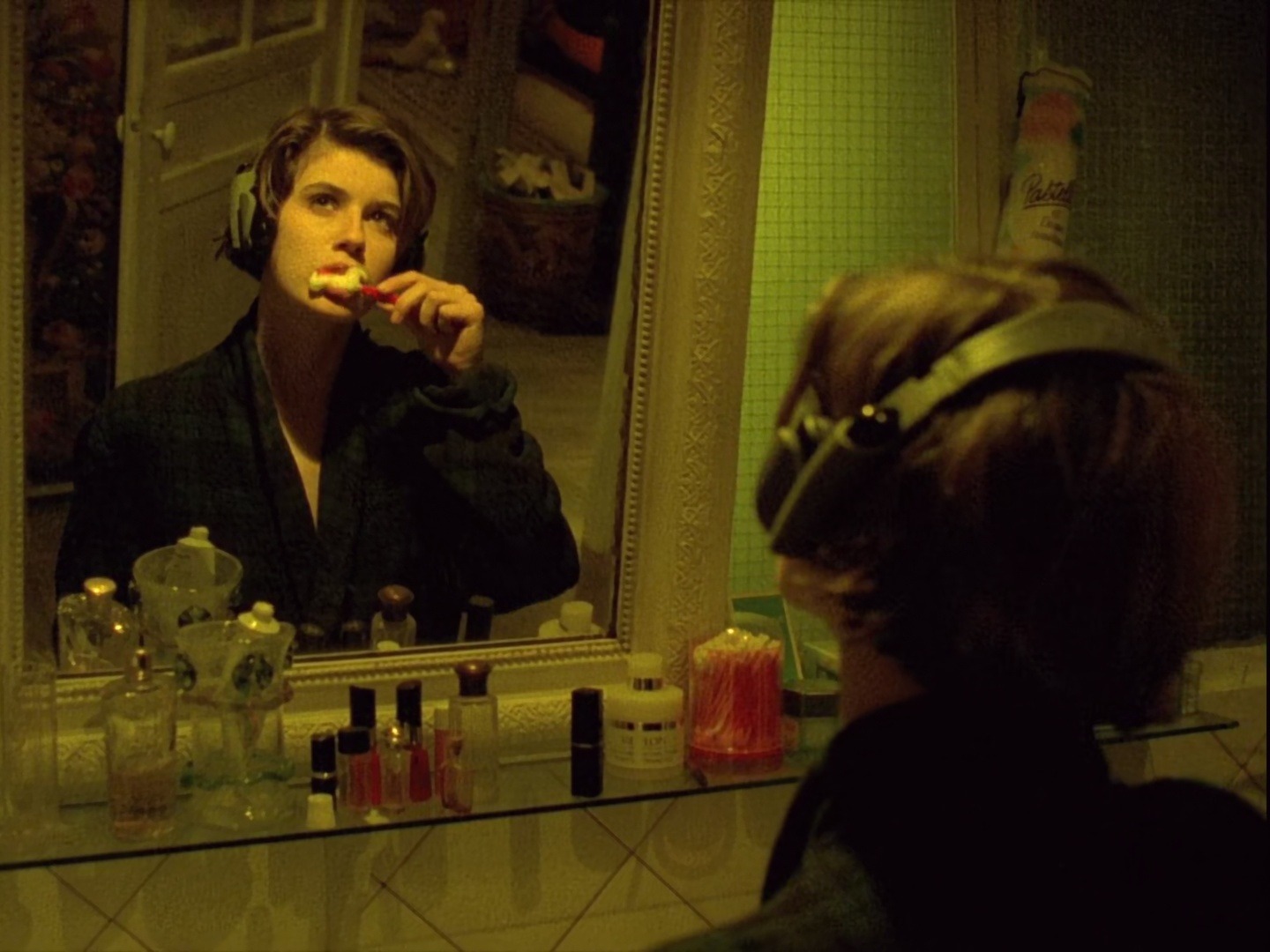The Double Life of Véronique (1991)

The Double Life of Véronique (1991) is a French-Polish film directed by Krzysztof Kieslowski, with Irène Jacob in the lead role. The film is an introspective and visually poetic exploration of identity, connection, and the mystical bonds between two women who are strangers yet inexplicably linked. Kieslowski, known for his mastery in creating thought-provoking, complex narratives, uses the story of Véronique to delve into themes of parallel lives and fate. The film is often celebrated for its symbolic storytelling, stunning cinematography, and deeply emotional performances.
The narrative of The Double Life of Véronique is built around two women, Véronique, one living in Poland and the other in France, who share a mysterious, almost telepathic connection despite never having met. Irène Jacob plays both characters—Véronique in Poland, a music teacher who experiences an inexplicable emotional crisis, and Véronique in France, a singer whose life is similarly marked by a profound sense of loss. The film follows their intertwined journeys, exploring their paths to self-discovery and the haunting realization of the link that ties them together. Kieslowski uses this dual storyline to examine the complexities of fate and the hidden forces that shape our lives.
Irène Jacob’s performance is nothing short of mesmerizing, as she brings a sense of depth and vulnerability to both versions of Véronique. Her portrayal of the two women is subtly nuanced, capturing their shared longing for meaning in a world that often feels disconnected. The film focuses on their internal struggles, particularly their search for something intangible—whether it’s love, identity, or a sense of purpose. Jacob’s ability to differentiate the two characters, despite their deep connection, adds a layer of intrigue and mystery that keeps the audience engaged throughout. Her emotive performance anchors the film, making the audience feel the weight of the characters’ silent struggles.
At the heart of The Double Life of Véronique lies a profound meditation on identity and the idea of duality. Kieslowski explores the idea of parallel lives and how two people, though living in different parts of the world, can experience similar emotions and existential crises. The film suggests that our identities may not be as individual as we think, and that the connections we have with others, even if unspoken, can transcend time and space. The mysterious link between the two Véroniques raises questions about the nature of fate, choice, and the inexplicable forces that connect people across the globe.

The Double Life of Véronique is renowned for its stunning cinematography, which plays a key role in conveying the film’s themes. The visual imagery is rich with symbolism, particularly the recurring motif of the color green, which serves as a visual cue for the connection between the two women. Kieslowski and cinematographer Slawomir Idziak employ a soft, dream-like quality in their shots, often blurring the lines between reality and fantasy. The use of reflections, mirrors, and overlapping imagery further enhances the sense of duality, drawing the audience into the enigmatic world of the film. The cinematography elevates the narrative, making it a work of art that is both visually striking and intellectually stimulating.

Music plays a significant role in the film, with composer Zbigniew Preisner creating a hauntingly beautiful score that complements the film’s melancholic tone. The soundtrack is delicate yet powerful, capturing the emotional depth of the characters’ experiences. The music often acts as an emotional guide for the viewer, amplifying the sense of longing, mystery, and introspection. Preisner’s score is perfectly attuned to the film’s reflective mood, and the recurring use of certain musical themes further underscores the connection between the two Véroniques, making the film’s emotional landscape even more resonant.

In conclusion, The Double Life of Véronique is a remarkable cinematic achievement that explores profound themes of identity, fate, and the mysterious connections between people. Krzysztof Kieslowski’s direction, coupled with Irène Jacob’s powerful performances, creates a film that is both intellectually stimulating and emotionally moving. The film’s striking cinematography and evocative score only add to its lasting impact. For those interested in films that challenge conventional storytelling and provoke deep reflection on the nature of life and connection, The Double Life of Véronique is an unforgettable experience.











